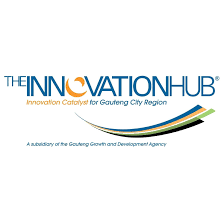Dr. Andrew De Vries, General Manager, Digital Economy at The Innovation Hub
South Africa’s trouble is not a lack of innovation. It’s investment and support for entrepreneurs and small businesses that is the major stumbling block preventing the country from harnessing the transformative power of the digital economy.
The digital economy refers to connected services and devices which unlock new efficiencies and enable greater access to services for individuals and communities, including Internet of Things (IoT) technology, data and data analysis, Artificial Intelligence (AI), and machine learning. Whilst these technologies may be considered part of the fourth industrial revolution, the truth is that they are inextricably linked to a continuous digital revolution that began taking place before the term was coined, and that will continue well into the future.
Far from a “nice to have”, innovators and start-ups within the digital economy space are already solving the country’s most pressing economic and developmental challenges, from basic needs such as water, sanitation, and energy, to mitigating unemployment and enhancing local industry competitiveness.
As a case in point, The Innovation Hub’s Digital Economy unit recently ran an energy management pilot project in collaboration with a female-owned Start-up, Concepts4.0, at three foundries in Gauteng which aimed to demonstrate the power of advanced manufacturing interventions. Historically, the local foundry industry has been very traditional in its approach – a fact which has seen it becoming increasingly uncompetitive, forcing a rising number of foundries to close. But through implementing sensors and IoT-related technology to monitor, track and manage energy consumption, this project shaved a total of R10 million from these foundries’ annual energy bill, significantly boosting their economic viability and potentially saving jobs.
Another success story has been the eJoobi intelligent recruitment platform which draws on the power of AI and unstructured supplementary service data (USSD) mobile services to democratise access to employment opportunities and alleviate unemployment. To use the platform, all individuals need to do is upload their CVs onto the platform at an internet shop, and from then on, they can apply to jobs using USSD services, eliminating the need for a smartphone or data.
The Digital Economy unit alone boasts 120 such start-ups within our portfolio, each with the potential to leapfrog developmental hurdles and deliver outsized returns for government and private company investors. What’s missing in order to unleash the full might of the innovation ecosystem are persistent complaints such as seed funding, access to market opportunities, advisory support, and mentorship.
Notably, turning innovations into sustainable, commercially viable enterprises that contribute to the economy and create jobs means that ideas must be driven by demand to secure uptake of services or products. This in turn requires matching solution seekers with solution providers, and giving providers the seed funding and technical support needed to develop prototypes to demonstrate value.
To address this challenge, the Digital Economy unit currently runs an open innovation solution exchange programme known as OpenIX, which acts as a Cupid-like initiative matching start-ups and small, medium and micro enterprises (SMMEs) with organisations in the public and private sector. After receiving a brief from the client, potential service providers are invited to submit their proposals for evaluation, which are then short-listed and finally selected for funding for pilot projects.
This programme is already making significant strides. One such start-up is currently assisting the Public Protector South Africa to develop and implement a complaints-management system to enhance service delivery and provide better support for citizens. Another helped to develop a solution for recycling sanitation water at rural schools that significantly reduced their water bill and ensured a continuous cycle of water was available for sanitation purposes.
This said, much more needs to be done.
The Innovation Hub is already developing a Smart Industry Centre to provide strategic infrastructure and comprehensive technical support for innovators within the digital economy. This will feature a product development laboratory – that aims to go live by May 2022, start-up facilities, hot-desking, additive manufacturing or 3D-printing resources, and low-volume manufacturing facilities for developing test products to position start-ups for offtake agreements or greater investments from government and other private investors.
But private sector clients now need to come on board by bringing their business to small businesses and start-ups, creating new market opportunities. Likewise, government should aim to roll-out these types of centres across the country to provide the support needed to ensure our global competitiveness, and finally address the social evils of unemployment, poverty and inequality.
Ultimately, the digital economy is at the heart of the technology-enabled protection and implementation of human rights, including the right to basic services, education, and employment opportunities. Innovators are waiting to answer South Africa’s most urgent questions – we simply need to ask.












